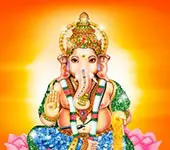Comments
Read more comments
You Should Listen To Bhagavata Only From The Right Source
We saw earlier that Suta heard Bhagavata from Shukadeva when he was narrating it to Parikshit.
Suta came and narrated Bhagavata to the Rishis in Naimisharanya later.
Then how come, this itself is mentioned in Bhagavata?
If Bhagavata was written before Suta narrated Bhagavata to the Rishis in Naimisharanya, then how come that itself is mentioned in Bhagavata?
This division into past, present, and future, is for us.
Rishis such as Vyasa, they can do time travel.
Sage Vyasa knew beforehand that whatever I am going to write is going to be professed in Naimisharanya by Suta.
Then the Rishis will ask this questions.
And these will be his answers.
So he wrote that also in Bhagavata.
Narada told Vyasa that what he was lacking was that he never looked at Bhagavan’s plays from a bhakti angle.
Sage Vyasa always looked at everything from a dharma angle only, never from a bhakti angle, before this.
But then Vyasa went into samadhi and verified.
Then he realized that yes, all these leelas can be looked at in a different way.
Not the way that I have been doing so for when I wrote the other Puranas and Mahabharata.
Vyasa’s theme has always been virtuous living.
That is what he would highlight in every incident.
But after going into samadhi upon being prompted by Narada, he realized that there can be an absolutely different perspective about spirituality which is the bhakti perspective.
Can everyone narrate Bhagavata in the same way?
Can everyone understand Bhagavata in the same way?
No.
There are some people who get confused, they don’t understand what is intended, they also go around and do pravachan, if not formally, informally.
In their own circles.
But then how do you make out whether someone is saying the right thing or not.
There is a simple test.
After listening to Bhagavata from someone, whoever it may be;
1- if you feel that you are getting closer to Lord Krishna,
2- if your affection towards the Lord is increasing day by day,
3- if you start getting lesser and lesser doubts, not curiosity, curiosity will increase to hear more and more about him, doubts will reduce,
4- you will not fear anyone or anything, be it your health, your financial status, your position, you will not fear anything anymore.
If these are happening with you in your life, then you are hearing Bhagavata from the right source.
If listening to Bhagavata is bringing you more and more doubts, worries, anxieties then you are listening from the wrong source.
Bhagavata will help you only if you listen to it from the right source.
This is not just about today.
Even the original narrators of Bhagavata, even they have been graded into prathama, madhyama, and uttama, in terms of quality.
Suta is prathama.
Narada is madhyama.
Shukadeva is uttama.
Because this would reflect in the way they narrate.
Suta is prathama because he is a narrator by profession.
Even though he has knowledge of even the secrets of Bhagavata, the very fact that he is doing it as a profession, that makes him a narrator of the prathama category.
He has some expectation, if not financial gains, something: name, fame, something, this can not be avoided if you are doing anything as a profession.
Narada has no such personal motives but he also had universal motives, that he should encourage Vyasa to write so that it will help others.
So Narada is qualified to be of the madhyama kind.
Only Shukadeva had no such intention.
Only he had vairagya, no expectations out of his narration to Parikshit.
Hence, he is of the uttama kind of narrators.
This also means that you should also listen to Bhagavata with no desire in mind.
Then the effects are much much more.
Knowledge Bank
Who killed Hiranyaksha and Hiranyakashipu?
Hiranyaksha was killed by Varaha and Hiranyakashipu was killed by Narasimha. Both are avataras of Lord Vishnu.
Who was Hiranyakashipu's sister?
Holika
Recommended for you
Vangma Asana Sukta Of Atharva Veda

vangma asan nasoh pranashchakshurakshnoh shrotram karnayoh . apalitah kesha ashona danta bahu bahvorbalam ..1......
Click here to know more..Khidkali Mahadev Mandir

A powerful Shiva mandir where the Pandavas offered worship during their exile....
Click here to know more..Vatapi Ganapati Stotram

ri'shiraajastutam shaantamajnyaanadhvaantataapanam| herambam sumukham vande vaataapigananaayakam|....
Click here to know more..